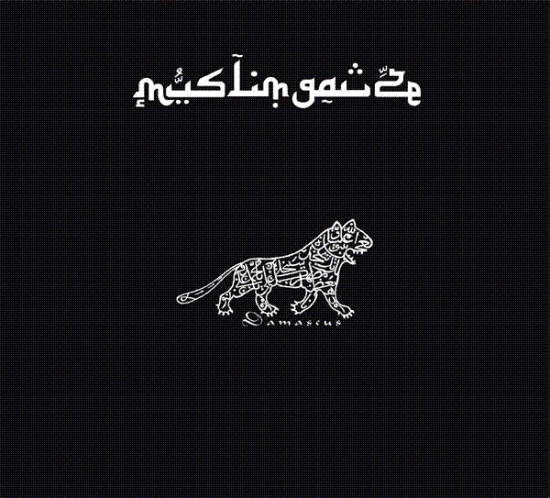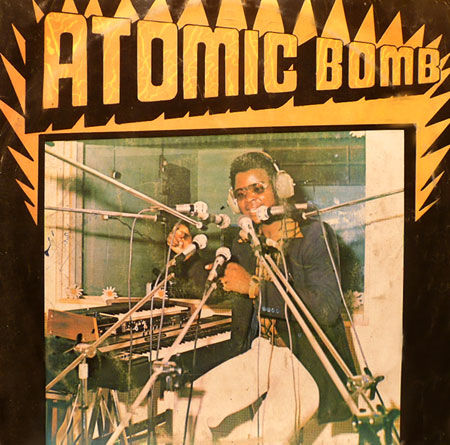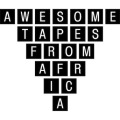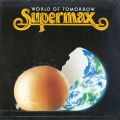Playing on the word muslin (a type of gauze) combined with Muslim – Bryan Jones’ preoccupation with conflicts throughout the middle east led him to develop one of the most dense, idiosyncratic and ultimately unforgettable musical projects electronic music has known
With dozens of albums released under his Muslimgauze alias, Bryan Jones was remarkably prolific, barely achieving any notable success during his lifetime due in part to his work being issued in a limited runs, on even smaller record labels. However, what is clear when you engage in listening to any of his music is that his blend of found-sound and orient atmosphere with heavily phased drones and dubby rhythmatic programs are among the most startling and unique of their kind.
Jones was born and lived his life in Manchester, he was not a practicing Muslim and never travelled to the Middle East – yet dedicated an immense creative investment in making political statements via his music, witnessing titles such as Fatah Guerrilla, Return of Black September, Hebron Massacre, Vote Hezbollah, United States of Islam, and The Rape of Palestine. Like so many bright stars, he burned out way too young – becoming ill in late December/early January 1999 having contracted a rare blood fungus that eventually took its toll on his immune system. He eventually developed pneumonia and passed away. It suffices to say that Jones’s output is so idiosyncratic and prolific, he would remix anything he was given to suit his purposes, and was more than capable of recording an album every week – working tirelessly for 17 years defining an entire genre of music all his own.
With a discography stretching 96 titles at the time of his death, this has nearly doubled since thanks to reissued titles and post-humus releases. Rather than try to unpick this man’s incredible depth of work (which would merit a PHD in itself), here’s a brief selection of early works to consider along with an early interview published by Phonetic System Fanzine in 1983:
Hammer And Sickle
MUSLIMGAUZE: A percussive based experimental sound.
BRYAN JONES: The instigator.
How did Muslimgauze come about?
“Muslimgauze came about, or came out of, the name I was using before. The last piece of music I made under that name was very different and from that a new style evolved. I stopped playing music and thought about what I’d like, or what direction I’d like to take. Once the name was chosen, I started to work on material which was to become the “Kabul” LP.”
Where does the name Muslimgauze come from, does it have any specific meaning?
“The name comes from the word muslin which in the dictionary means fine soft cotton fabric resembling gauze, so the first idea was Muslingauze which became Muslimgauze. I changed it to Muslim because the area of the world it originates from interests me immensely.”
Would you like to try and make future releases available to a wider audience or are you content to stay with your present audience?
“I’m not content to stay still. If it’s at all possible for Muslimgauze to reach more people, that’s what I would like. But I’m realistic, I’m never going to appeal to a massive audience. Also I’m not going to attract interest from any form of record company, of any size, because of the type of music I make, none vocal, none commercial. At the moment I release what I want when I want, and in whatever form. Total control. I wouldn’t want to lose that, but a wider audience would be interesting, if only for their opinions, which I like to know about.
Kabul
Do you feel your music is influenced by anyone in particular?
“I don’t think I’ve been influenced in my music, it’s self motivated but there were certain bands I listened to a lot. For instance the German bands Can, Faust, Tangs (?) etc and early Throbbing Gristle. I started my involvement in music when I saw them playing at the Factory Club in Manchester in 78, so I’d say Throbbing Gristle had a great effect on me, but I don’t think you can find any trace of them in the music Muslimgauze produce.”
Do you always work alone on your music?
“At the moment I’ve got no plans to include anyone else, I have worked with other people when I played under the last name but it didn’t work. I work in my own way and I can’t change to fit with somebody’s ways. The only problem with doing everything yourself is the money, an age old problem.”
Zebra Slaughter
What plans do you have for Muslimgauze in the near future?
“In the near future, which is as far as I look, there will be a new record. A 12″ mini LP, four tracks, called at present, ‘Holy Fascist Hyena’. Most of it is recorded. It’s the first time I’ve recorded in a ‘normal’ studio set-up, the results are a lot better. I’ve also recorded a track for the Flux Records compilation LP which should be out soonish. I’m also putting together a fanzine which will move into areas not covered by standard fanzines. This could be shelved, as all my work could be, at any time. I’m always interested in doing compilation LPs or tapes. I like the idea of every track being different, a constant change of style, music and sound.”
Are you pleased with how the project has gone so far?
“I think you always feel you could have done better at a later date with anything, but given the equipment used etc., yes I think I’m quite pleased. The next record is undoubtedly better in a number of ways. As I’ve said it’s the first recorded in a studio, using somebody else to produce it. An outside person can see the music from another point of view, with this record it was helpful.”
Under Black Light
You appear to keep a very low public profile (no sleeve photos etc), is there any particular reason for this?
“The reason for a low public profile is, it may sound old hat but I just want people to listen to the music. I don’t want an image or a pinned down set idea for people to look at. I feel image has no part to play where recorded music is concerned. That’s why I’m totally against the video. It’s dividing music into two leagues, those with money and those without. Music stays, images come and go. Is a photograph on a sleeve important? I don’t think it is. But if the people who buy the records want one, then maybe a re-think is called for.”





